Advocating for Academic Veterinary Medicine
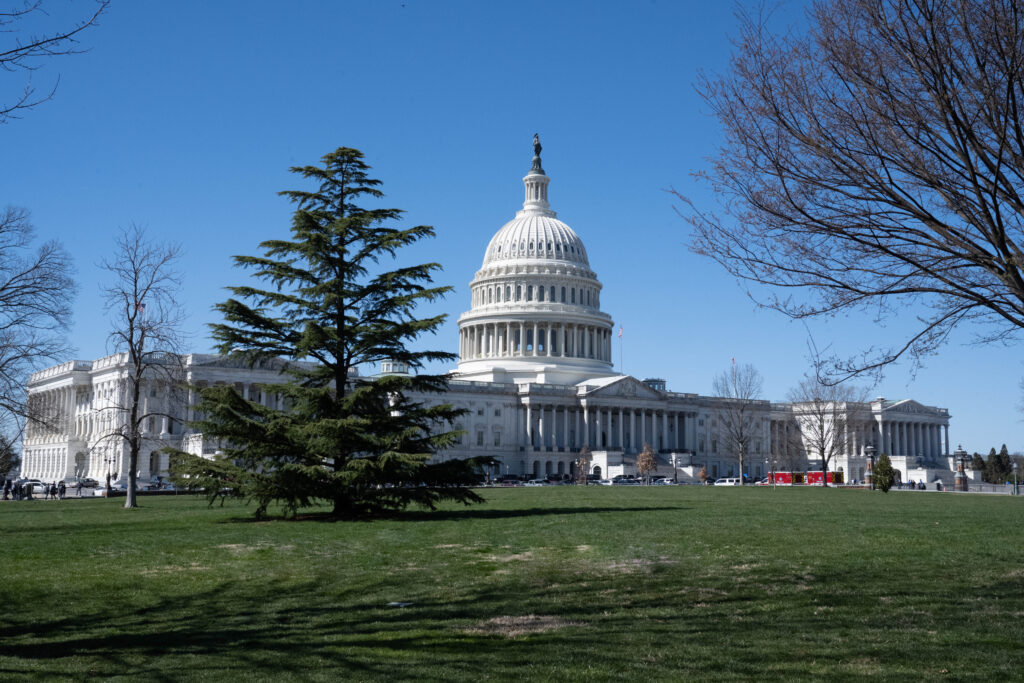
The Governmental Affairs program works to secure resources in support of academic veterinary medicine. This includes informing and influencing policymakers and their staff on important issues that affect veterinary medicine’s impact on public health, including biomedical research, agriculture, and animal welfare, as well as both direct and indirect support for colleges of veterinary medicine.
A Sustained and Collaborative Effort
Working closely with the government relations officers who serve our members, we monitor, review, and respond to federal legislation or regulations that affect veterinary medical education. This includes maintaining a continuous presence on Capitol Hill to inform decision-makers and the public about the critical role that veterinary medical education plays. It contributes to society’s overall quality of life by educating veterinarians who advance medical knowledge, helping to recognize and prevent the spread of diseases and pathogens, and protecting our nation’s food supply.
We reach out to all branches of government to encourage the development of policies that will benefit veterinary medical education and to explain the many ways in which such support will also enhance animal and public health.
With input from our Advocacy Committee, the governmental affairs program identifies and addresses critical issues in veterinary medical education, such as the need for increased diversity and the too-burdensome debt load often carried by graduates. Our work includes supporting initiatives designed to encourage a wider spectrum of students, to reduce veterinary medical student debt through public and private support and loan-forgiveness programs, and to recognize the contributions that veterinarians make to our public health system.
Finally, we work to keep the importance of veterinary medical education in the public’s eye through media outreach, public events and Hill briefings that highlight the crucial role that academic veterinary medicine plays in advancing society’s well-being.
AAVMC Advocacy Day & Legislative Agenda
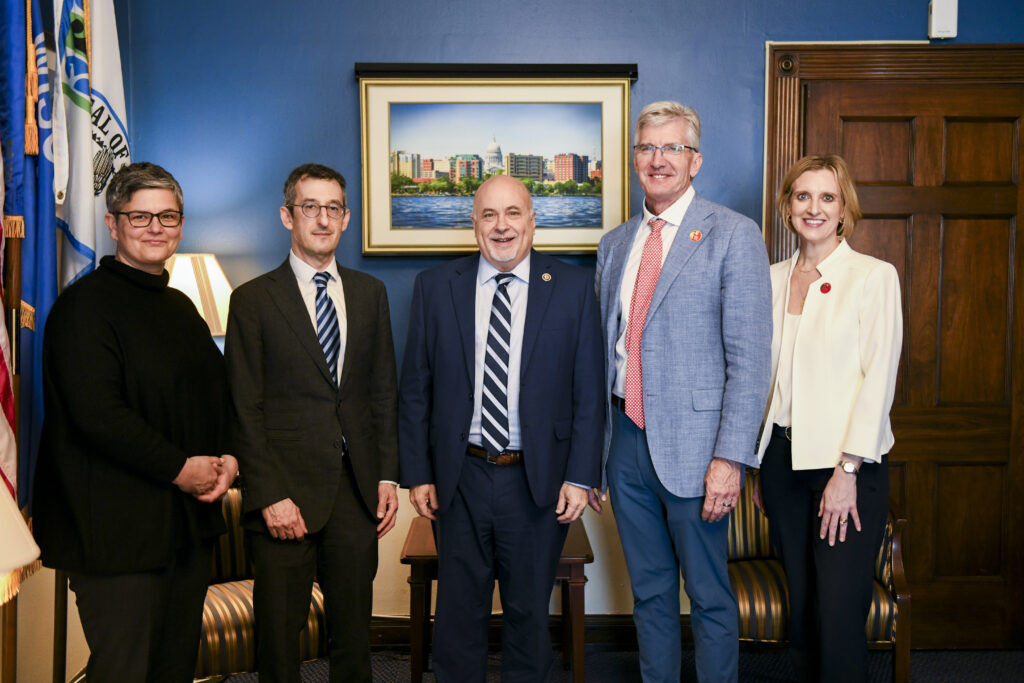
Advocacy Day Priorities:
The AAVMC periodically produces summaries that detail legislative priorities during Advocacy Day. Please click below to review samples of those documents.
Legislative Agenda:
Legislative Agenda for 118th Congress (2023-2024)
Newsletters & Advocacy Letters
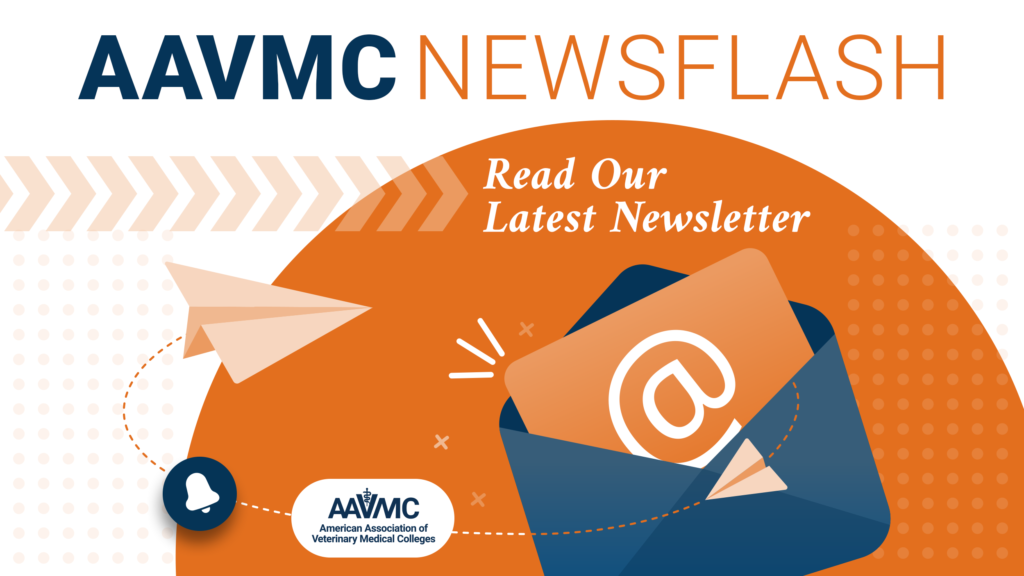
AAVMC Advocacy Newsletter – The Advocate
Our most recent edition of The Advocate is linked below. To view the full newsletter archive and access all past editions, click here. If you would like to subscribe to The Advocate, click here.
- The Advocate: Winter 2025
 AAVMC Advocacy Letters
AAVMC Advocacy Letters
The AAVMC’s governmental affairs department frequently collaborates with partner organizations to inform Congressional and executive branch leaders about important legislation. See some letters here and below.
- Letter to Congress in Support of the Public Service Loan Forgiveness program
- Community Support Letter for FY 2026 funding for the National Institute of Allergy and Infectious Diseases
- Final FY 2026 Ad Hoc Group NIH Funding Recommendation
- Letter supporting funding in FY 2025 for the Vector-Borne disease Network
- Community Letter requesting appropriations for the National Wildlife Health Center for FY 2026
- Community support letter for FY 2026 funding for the Agriculture Advanced Research and Development Authority (AGARDA)
Legislative Briefings
The AAVMC regularly conducts legislative briefings for Capitol Hill Congressional members and staff, often working in conjunction with the American Veterinary Medical Association (AVMA). The briefings feature leading scientists who discuss the role veterinary medicine plays in helping address threats posed by infectious diseases, antimicrobial resistance, the need for increased federal support for biomedical research, and other important topics.
Member Institution Economic Impact Information
A number of AAVMC member institutions have developed infographics and other materials that demonstrate the critical role academic veterinary medicine plays in agricultural productivity, public health, and economic development in the states they serve.
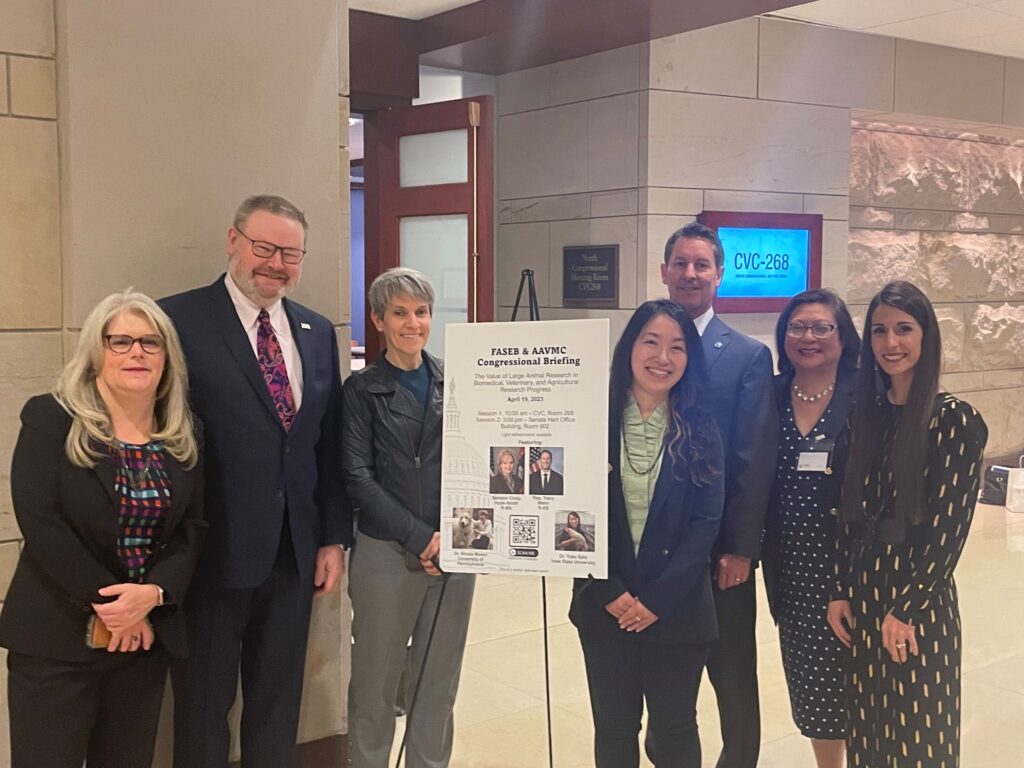
The Federation of American Societies for Experimental Biology (FASEB) and American Association of Veterinary Medical Colleges (AAVMC) hosted a Congressional Briefing, “The Value of Large Animal Research in Biomedical, Veterinary, & Agricultural Research Progress,” on Wednesday, April 19, 2023.
Purpose: To educate Congressional staffers on the importance of large animal research across a broad range of industries and disciplines essential to our nation’s health and economic stability, including biomedical research, veterinary medicine, and agriculture. The briefing specifically focused on oncology comparative medicine and highly pathogenic avian influenza, including the recent H5N1 outbreak.
Congressional Guest Speakers:
Senator Cindy Hyde-Smith (R-MS)
Rep. Tracey Mann (R-KS-01)
Rep. Randy Feenstra (R-IA-04)
Keynote Speakers & Moderator:
Nicola Mason, BVetMed, PhD, DACVIM, MRCVS
Professor of Medicine & Pathobiology,
University of Pennsylvania School of Veterinary Medicine
Yuko Sato, DVM, MS, DACPV
Veterinary Diagnostics & Production Animal Medicine,
Iowa State University College of Veterinary Medicine
Kevin Kregel, PhD (Moderator)
President, Federation of American Societies for Experimental Biology (FASEB)
Executive Vice President & Provost, University of Iowa
Moderated Discussion / Q&A:
Following keynote presentations, attendees had the opportunity to participate in a moderated discussion with the keynote speakers, including asking questions.




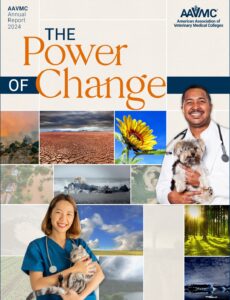


SHARE